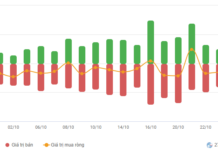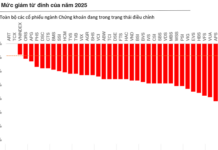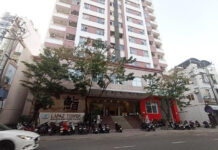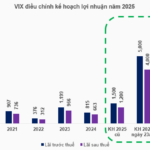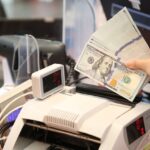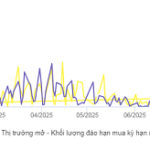The Hanoi People’s Court is expected to deliver its verdict on August 5th in the case of “Fraudulent Appropriation of Property and Stock Market Manipulation” involving 50 defendants, including the FLC Group Joint Stock Company.
A Small Number of Victims Present
The trial, which began on July 22nd, was expected to last several days. However, the proceedings were expedited as the defendants, notably Trinh Van Quyet, former chairman of FLC Group, accepted the charges against them.
As a result, the defense lawyers primarily focused on presenting mitigating circumstances for their clients. The court also employed a “rolling” questioning method, efficiently questioning each defendant. Additionally, the judges requested that the lawyers focus on the key issues and refrain from citing numerous legal provisions.
With an estimated 25,000 victims (initially stated as 30,000 in the indictment), the court set up a tent with thousands of seats for the victims to attend.
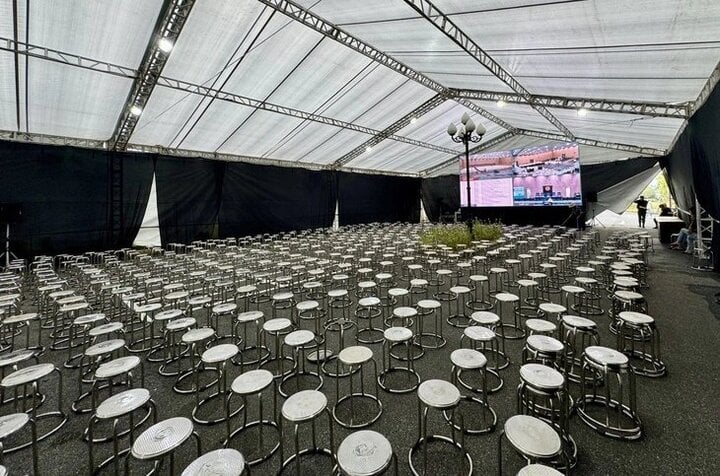
The court set up a tent with thousands of seats, but only a small number of victims attended.
However, only about 30 people showed up on the first day, and the number remained low on subsequent days.
According to attorney Vu Dang Hai Yen (representing Trinh Van Quyet), only about 40% of the victims on the list interacted directly with the prosecuting authorities, and many of them did not request compensation. Some had even sold their shares at a profit.
Currently, there are 133 victims who still hold F0 shares (purchased directly from Trinh Van Quyet and the initial 15 shareholders). Among them, 95 are seeking compensation for their losses, as they collectively hold more than 381,000 shares worth nearly VND 1.4 billion.
It is worth noting that Trinh Van Quyet’s family has compensated this group of victims with more than VND 2 billion.
Disputes Over Victim Identification
The identification of victims and the determination of losses became a subject of debate during the trial. Even on the last day of the trial (July 29th), as the court prepared to deliberate, many lawyers expressed concerns about this issue.
On the morning of July 29th, after reviewing the list of victims at the request of the defense lawyers, the prosecutor’s office identified more than 25,000 victims (due to duplicate names), a decrease from the initial 30,000 stated in the indictment.
“The initial investors used real money (with 30,403 securities accounts) to purchase more than 391 million ROS shares that did not exist and suffered losses of more than VND 3,620 billion,” the prosecutor’s office explained, justifying their classification as victims.
The four lawyers representing Trinh Van Quyet argued that, according to the criteria in the case file (regarding the definition of victims), these individuals must meet the following conditions: they purchased ROS shares from F0 and have not sold them or have sold less than the total number of shares purchased.
This implies that investors who have sold or no longer hold a balance of F0 shares in their accounts would not meet the subsequent criteria for being considered victims.
“Additionally, in the materials submitted to the People’s Court, there is a minutes of meeting between the Investigative Agency, the Procuracy, and the State Securities Commission, which states that only 200 accounts still hold F0 shares. Therefore, we request that the People’s Court reconsider the criteria used by the Procuracy to determine the victims,” the lawyers requested.
Ultimately, the lawyers proposed that the court recognize only the 133 investors who still hold the initial shares as victims and consider the amount of money appropriated as VND 2.2 billion, corresponding to the value of the remaining ROS shares held by these 133 victims.
The lawyers also requested that the court acknowledge that Trinh Van Quyet has compensated all the victims for the appropriated amount of VND 2.2 billion. Regarding the VND 3,600 billion, considered as ill-gotten gains, Trinh Van Quyet has committed to paying this amount into the state budget.
Desire to Utilize Assets Worth VND 5,000 Billion for Compensation
During the trial, Trinh Van Quyet repeatedly expressed his desire to have the freeze lifted on his assets, estimated at VND 5,000 billion, to facilitate restitution. The most valuable asset among these is his 30% stake in the FLC Group.
Quyet asserted that, based solely on the real value (excluding the stock price), with approximately 5,000–6,000 hotel rooms, the Group is worth billions of dollars.
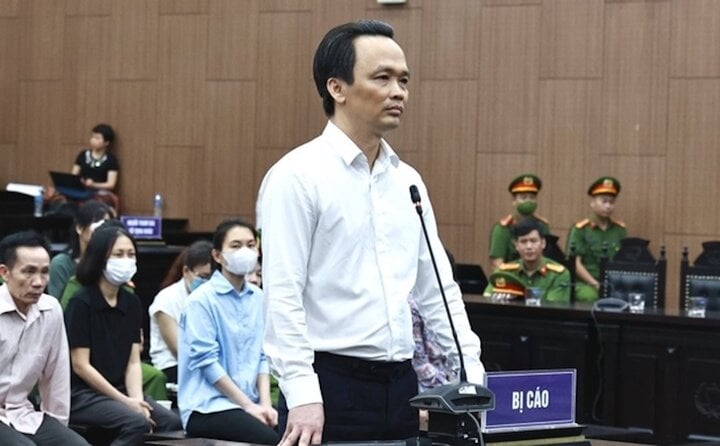
Former FLC Chairman, Trinh Van Quyet, at the trial.
“The defendant earnestly wishes to be given the opportunity to have the freeze lifted so that he can make restitution. Currently, he has been allowed to sell his most cherished asset, the airline Bamboo Airways,” Quyet said, adding that the sale was for VND 700 billion, of which VND 200 billion has been paid into the temporary holding account of the authorities.
“In these difficult circumstances, isolated from society and with his assets frozen, Trinh Van Quyet has continuously urged his family to mobilize all available resources to compensate for the damages. So far, they have compensated nearly VND 240 billion, and the family continues to strive to make amends,” attorney Nguyen Nam Long (representing Trinh Van Quyet) informed the court.
“Trinh Van Quyet’s remaining assets are entirely capable of making amends. There are also partners willing to purchase these assets, as mentioned by the defendant,” attorney Trinh Hong Phuc stated, requesting that the court consider lifting the freeze on Quyet’s assets.
The court has stated that it will consider and evaluate this matter.
Defendant Who Pleaded Not Guilty Changes Stance
Among the defendants, only Le Van Tuan, an auditor at Hanoi Audit and Accounting LLC (CPA Hanoi), denied the charges against him during the investigation and prosecution phases.
At the trial, Tuan asserted that his role at CPA Hanoi was limited to client acquisition, and he was not involved in any meetings or the signing of full-package audit reports to assist Faros Construction Corporation in completing its listing dossier.
According to the indictment, during the investigation and conclusion of the case, the defendant Le Van Tuan admitted to the entire act of committing the crime. However, during the prosecution phase, he changed his testimony and denied the offense but could not provide evidence to support his claims.
On July 27, during the debate, Tuan unexpectedly admitted to the crime. As a result, his lawyer was given the opportunity to defend him during the rebuttal session on the morning of July 29.





